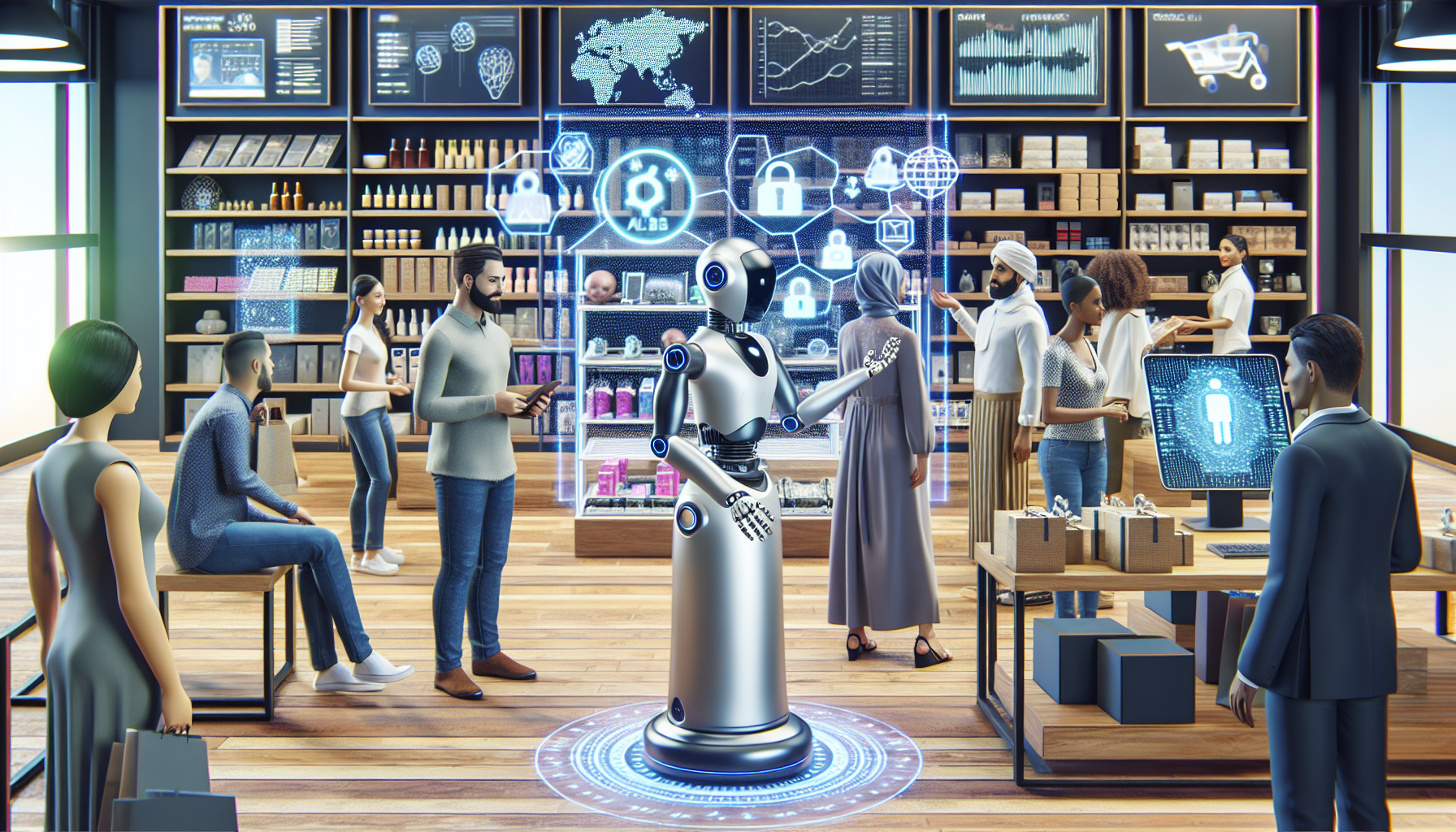How AI is Redefining Customer Relationship Management in Retail
Understanding AI in CRM
Artificial Intelligence (AI) has transformed various sectors, with retail standing out as a primary beneficiary. At its core, AI enhances Customer Relationship Management (CRM) by analyzing data patterns, predicting trends, and personalizing interactions. Retailers can harness AI effectively to refine customer experiences, boost loyalty, and ultimately drive sales.
Data-Driven Insights for Personalized Marketing
With the rise of Big Data, retailers are now equipped with vast amounts of consumer data. AI algorithms parse this data to extract actionable insights. Through machine learning, systems learn from past consumer behavior, allowing retailers to craft marketing messages that resonate with specific segments. For instance, if a particular demographic shows a preference for eco-friendly products, AI can help target advertisements to that group more effectively.
The use of predictive analytics in CRM helps retailers anticipate customer needs before they even emerge, significantly enhancing marketing efforts. This proactive approach not only increases engagement rates but also supports higher conversion rates.
Enhanced Customer Segmentation
Traditional methods of customer segmentation often yield limited results due to a one-size-fits-all approach. AI, however, revolutionizes this by adopting sophisticated techniques such as clustering algorithms and neural networks to identify micro-segments within a customer base. Retailers can analyze shopping habits, frequency, and preferences to develop more targeted strategies.
By understanding and catering to niche segments, retailers can create highly tailored experiences, moving beyond generic marketing. For example, AI can help identify loyal repeat customers, occasional buyers, and first-time visitors, allowing brands to devise specific campaigns for each category.
Personalized Customer Experiences
AI’s capabilities enable personalized user experiences, profoundly affecting customer satisfaction. By leveraging chatbots and virtual assistants, retailers can facilitate immediate interactions with their customers. These tools employ natural language processing (NLP) to understand inquiries and provide instant responses. This immediacy fosters a sense of direct engagement and accessibility, key components in modern CRM.
AI also supports personalized recommendations on e-commerce platforms. By analyzing previous purchases and browsing behaviors, AI systems can suggest complementary or alternative products. These recommendations not only enhance user experience but increase cross-selling and upselling opportunities.
Streamlining Operations with Automation
Beyond customer interactions, AI significantly streamlines operational aspects of CRM. Tasks such as customer feedback collection and data entry can be automated, resulting in efficiency gains. AI-driven systems can analyze customer feedback through sentiment analysis, providing retailers insights into public perception without intensive manual labor.
Additionally, automated reporting tools leverage AI to generate real-time insights based on sales and customer satisfaction metrics. These reports enable managers to make informed decisions that align with business objectives swiftly, fostering proactive rather than reactive strategies.
Dynamic Pricing Strategies
Retail pricing strategies are evolving, thanks in part to AI algorithms that analyze real-time market and consumer data. By monitoring competitor prices, demand fluctuations, and inventory levels, AI can help retailers implement dynamic pricing strategies that respond to changing market conditions. This ensures competitiveness without sacrificing profit margins.
This adaptability works particularly well in e-commerce, where instant price adjustments based on demand can significantly impact sales volumes. Furthermore, AI can determine optimal pricing points that maximize revenue while maintaining customer satisfaction.
Improving Customer Retention
The cost of acquiring new customers far outweighs the cost associated with retaining existing ones. AI plays a vital role in increasing customer retention rates through predictive churn modeling. By analyzing customer behavior patterns and purchase history, AI can identify at-risk customers.
Once potential churn is detected, retailers can proactively implement loyalty incentives and personalized communications tailored to these customers’ preferences. This targeted approach often leads to improved customer loyalty and increases their lifetime value.
Enhancing Customer Support Services
Customer support is paramount in retail, and AI enhances these services manifold. AI chatbots, powered by advanced algorithms, can provide 24/7 support, fielding customer inquiries and resolving issues instantly. They can troubleshoot common problems, freeing human agents to tackle more complex queries.
Moreover, the integration of AI with CRM systems offers comprehensive solutions that track customer interactions across channels. This omnichannel approach ensures that customers receive consistent support, regardless of the medium they choose, whether it’s phone, email, or social media.
Challenges and Considerations
Despite the advantages, integrating AI into retail CRM isn’t without challenges. One of the key issues is data privacy. With growing concerns about personal data usage, retailers must navigate compliance with regulations such as GDPR or CCPA. Ensuring that the implementation of AI respects customer privacy is crucial for sustaining trust.
Furthermore, retailers need to invest in robust infrastructure and training. Implementing AI systems necessitates an upfront investment and ongoing maintenance. Retailers must equip their workforce with skills to work alongside AI tools, ensuring that both technology and human employees function cohesively.
The Future Outlook of AI in Retail CRM
As technology progresses and AI capabilities expand, the retail landscape is set to become even more integrated with automation and data-driven decision-making. The ongoing evolution of AI will likely lead to more predictive and prescriptive analytics, offering insights that can further enhance customer relationships.
Innovations such as blockchain integration with AI could also change the retail CRM landscape by providing secure and transparent transactions. Similarly, augmented reality (AR) technologies may create immersive shopping experiences, further personalizing retail encounters.
In conclusion, AI is revolutionizing how retailers approach Customer Relationship Management, making it more efficient, responsive, and personalized. As the technology continues to evolve, retailers who leverage these advancements will likely maintain a competitive edge, fostering deeper relationships with customers and driving ongoing success.


